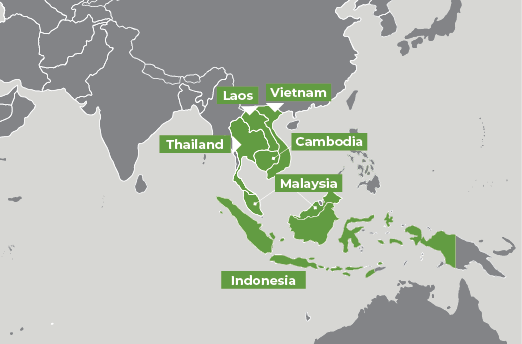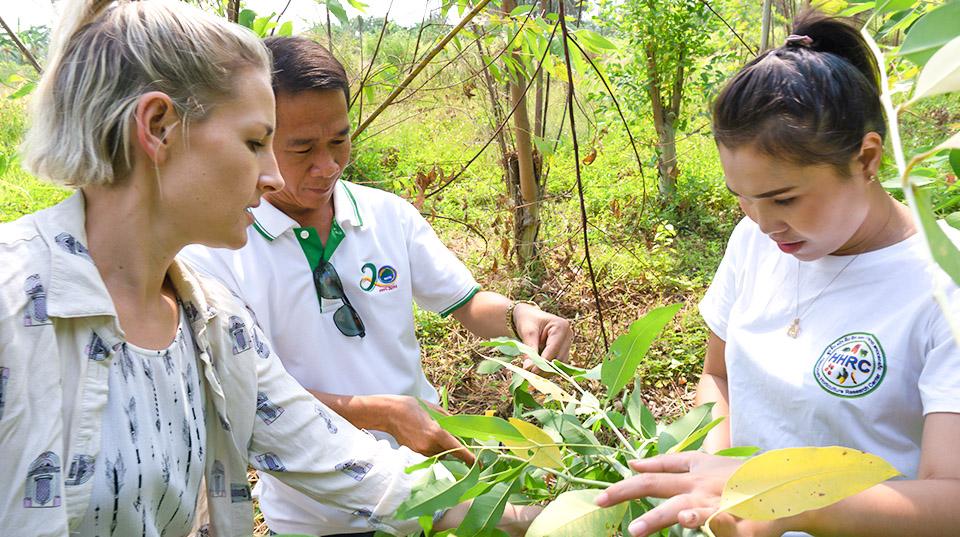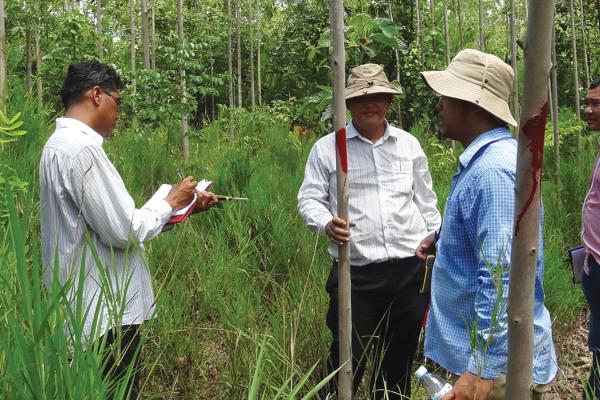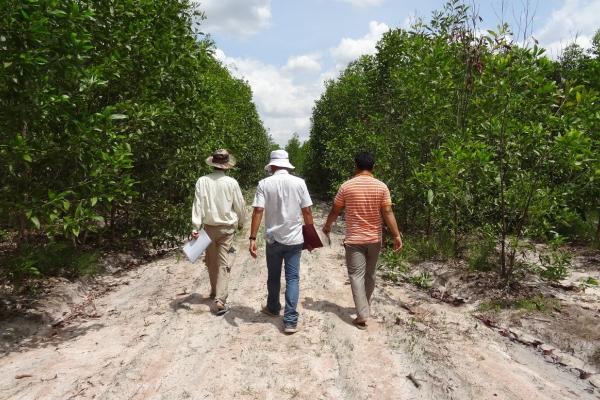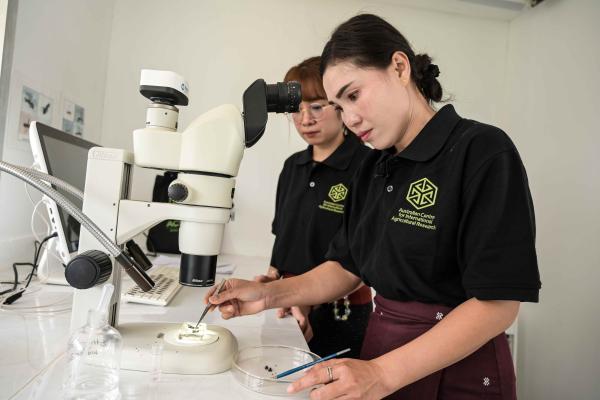Overview
This project aims to establish an effective and sustainable forest health and biosecurity network in SE Asia to improve risk management for invasive forest pests and diseases.
Biosecurity is a common thread in timber production, food and livelihood security, and forest conservation, protecting trees from invasive species that threaten ecosystem stability and decimate tree production. In SE Asia, land borders are open to biosecurity threats due to poorly regulated movement of goods and people. Weak biosecurity capacity to protect natural assets leaves smallholders particularly vulnerable.
ACIAR has a long research history in the development of germplasm for industrial and smallholder forest plantations in SE Asia. With increased trade, global movement and a changing climate, SE Asia will inevitably see an increase in new and emerging pest threats. An invasion by a single pest can result in serious negative environmental, economic, and social impacts. A better understanding of emerging pest threats is needed to guide and develop good biosecurity practices and frameworks that can reduce such risk and ensure resilience.
Expected project outcomes
- Enhancing capacity and improving networks
- Improving surveillance, diagnostics and reporting
- Enhancing biosecurity
- Building capacity
- Enabling innovation enabled
- Developing a biosecurity network for the region which may be applied more widely to other developing countries in other regions in future
- Implementing an app that will integrate a field guide (regional pests and diseases in acacia, eucalypts and pines) and reporting and will be available on iOS and Android platforms to ensure maximum uptake and application
- Evaluating multilures for cerambycid (longhorn) beetles and bark and ambrosia beetles in the pilot trapping part of the project
